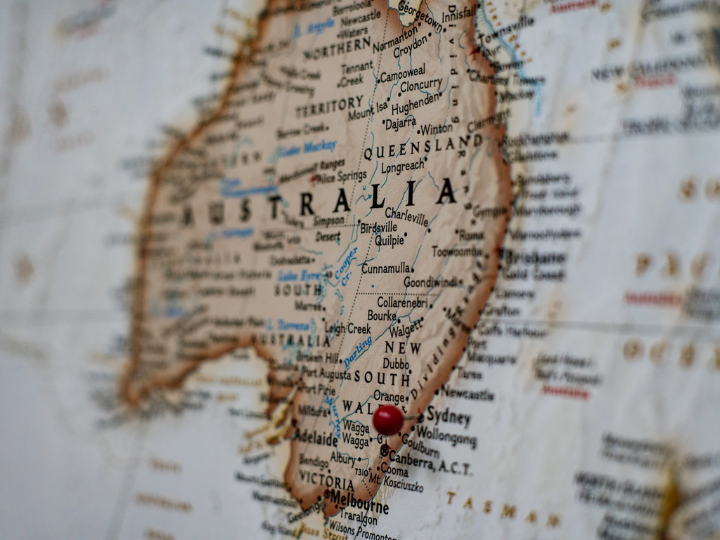by Geoff Kitney*
In the annals of diplomatic fumbles, the text message by which Australia announced to France its decision to ditch a €50 billion ($58 billion) submarine contract must rate highly.
Australian Prime Minister, Scott Morrison, revealed that he had delivered the shock news to French President Emmanuel Macron by text message—after a failed attempt to set up a telephone call—because time was running out ahead of the public announcement of Australia’s decision.
Yet Morrison seems insouciant about the offense that France has taken at the manner in which it was informed of the submarines decision and the creation of a new Indo-Pacific U.S.-British-Australian strategic alliance—AUKUS.
There have been rumblings in Washington and London that Morrison’s off-handedness toward the French had been extremely unhelpful.
But while France’s public anger has mostly been directed at Australia there is obviously a deeper concern in France about U.S. President Joe Biden’s handling of the issue and what this says about the transatlantic relationship and the future of NATO as the United States shifts it focus to the China threat in the Indo-Pacific.
The fact that Morrison was delegated to break the news to the French president should worry Paris and other European capitals for another reason.
Biden surely should have been aware that Morrison comes from an influential movement of Australian conservatives who share, with similar powerful conservative political forces in the United States—and, of course, in Brexit UK—, open disdain for Europe and the European Union.
Going back decades to the days when Australia fought a constant battle with Europe over EU agricultural subsidies, relations between Canberra and the European capitals have never been better than civil. France was always seen in Canberra as an arrogant defender of the Common Agricultural Policy.
Australian conservatives, up to the highest level of government, cheered on Britain’s Brexit decision. They pushed for an early free trade agreement (FTA) with the UK as an act of solidarity with London. And they vocally advocated for a post-Brexit “Anglosphere” strategic alliance—now consummated by the creation of AUKUS.
The irony of the deep falling out with France—and the reverberations that it has had in Brussels and other European capitals—is that Australia seems to have been little concerned about what this might mean for the prospects of a free trade agreement with the EU. This is a trade deal whose economic value would dwarf the Australia-UK FTA.
Negotiations for the deal with the EU, which were in their final stages, have been disrupted as France has refused to meet with Australia’s trade minister who is due to visit European capitals to give the deal a final push.
A key question now is whether France can persuade its European partners to put the negotiations into deep freeze.
Australia’s treatment of France on the submarine project and the creation of AUKUS, however, was not just about past grievances and old familial relationships between Britain and its former colonies.
From the moment the concept of an Anglospheric security alliance was first conceived in Australia, initially to give Boris Johnson cover for his promise of a “global Britain,” Australia has never considered European involvement.
In the background, from the outset, was the Australian conservative government’s view, shared with the United States, that Europe was unlikely to want to wholeheartedly commit to a new Indo-Pacific security alliance.
This was based on both an assessment of Europe’s need to focus on its own neighborhood—especially with problematic Russia—and a view that the Europeans were more fixated on China as an economic opportunity than a strategic threat.
Australia was little moved by the fact that the EU was developing its own Indo-Pacific strategy—as confirmed by the fact that the AUKUS partnership was announced on the day the EU unveiled its Indo-Pacific strategy, without reference to it.
This reflects the hardening of Australia’s assessment of the threat posed by China in the Indo-Pacific region.
While the EU stresses that a key part of any strategy for the region has to include “building strong and lasting partnerships” with all sides, Australia has become increasingly skeptical that a long-term partnership with a more assertive and more belligerent China is possible.
As the United States has moved from regarding China as a strategic partner to a strategic rival and, more recently, a potential enemy, Australia has moved too.
Critics argue that the Morrison government has revived the “Reds under the beds” anti-Communism scare tactic which was used to justify Australia’s entry into the Vietnam war. But there is wide public support for the harder line. The Opposition Labor Party, fearing being wedged, has backed the shift and endorsed the AUKUS deal—despite warnings that Australia has moved itself into the front line of potential nuclear targets in the event of a U.S.-Chinese war.
The crumbling of the diplomatic and trade relationship with China since Australia (unwisely) took the lead in promoting the idea that the coronavirus may have come from a laboratory in Wuhan has seen Australia aggressively push for a strategic architecture that builds a protective shield against the China threat with old allies and friends. Even at the risk of damage to its own economic relationship with Beijing.
Indeed, before the new nationalistic posture China assumed under President Xi Jinping, Australia had sought to elevate the role of the long-standing Five Eyes (the United States, Australia, the UK, Canada, and New Zealand) intelligence-sharing agreement. It also energetically promoted the formation of the so-called Quad forum, composed of the United States, Australia, India, and Japan in the Indo-Pacific region. At no point did Australia plan to include Europe in these structures.
Europe should be lucky Morrison bothered to send a text at all.
*Canberra-based writer on politics and international affairs
**first published in: carnegieeurope.eu




 By: N. Peter Kramer
By: N. Peter Kramer
